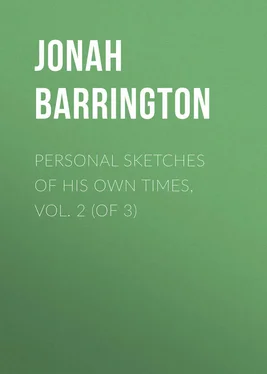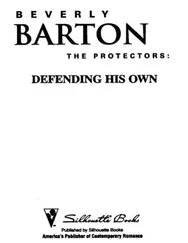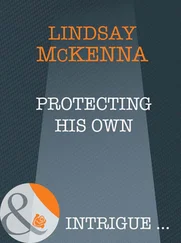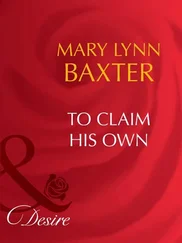Jonah Barrington - Personal Sketches of His Own Times, Vol. 2 (of 3)
Здесь есть возможность читать онлайн «Jonah Barrington - Personal Sketches of His Own Times, Vol. 2 (of 3)» — ознакомительный отрывок электронной книги совершенно бесплатно, а после прочтения отрывка купить полную версию. В некоторых случаях можно слушать аудио, скачать через торрент в формате fb2 и присутствует краткое содержание. Жанр: foreign_antique, foreign_prose, на английском языке. Описание произведения, (предисловие) а так же отзывы посетителей доступны на портале библиотеки ЛибКат.
- Название:Personal Sketches of His Own Times, Vol. 2 (of 3)
- Автор:
- Жанр:
- Год:неизвестен
- ISBN:нет данных
- Рейтинг книги:4 / 5. Голосов: 1
-
Избранное:Добавить в избранное
- Отзывы:
-
Ваша оценка:
- 80
- 1
- 2
- 3
- 4
- 5
Personal Sketches of His Own Times, Vol. 2 (of 3): краткое содержание, описание и аннотация
Предлагаем к чтению аннотацию, описание, краткое содержание или предисловие (зависит от того, что написал сам автор книги «Personal Sketches of His Own Times, Vol. 2 (of 3)»). Если вы не нашли необходимую информацию о книге — напишите в комментариях, мы постараемся отыскать её.
Personal Sketches of His Own Times, Vol. 2 (of 3) — читать онлайн ознакомительный отрывок
Ниже представлен текст книги, разбитый по страницам. Система сохранения места последней прочитанной страницы, позволяет с удобством читать онлайн бесплатно книгу «Personal Sketches of His Own Times, Vol. 2 (of 3)», без необходимости каждый раз заново искать на чём Вы остановились. Поставьте закладку, и сможете в любой момент перейти на страницу, на которой закончили чтение.
Интервал:
Закладка:
I knew Jemmy Keogh extremely well, when he was pretty old. He was considered in the main a peace-maker , for he did not like any body to fight but himself; and it was universally admitted that he never killed any man who did not well deserve it. He was a plausible, although black-looking fellow, with remarkably thick, long, curled eyebrows closing with a tuft over his nose. He spoke deliberately, reasoned well, and never showed passion. When determined to fight, his brows knit, his eyes fixed, and (as an antagonist) he cut a very unprepossessing figure. I never heard that he was wounded. When he tried to restrain his anger, he set his teeth, kept his tongue a close prisoner, and appeared like one with a locked jaw. No man was more universally known in Ireland. He unfortunately shot a cripple in the Phœnix Park, which, though fair enough, did him great mischief. He was land-agent to Bourke of Glinsk, to whom he always officiated as second.
At length, so many quarrels arose without sufficiently dignified provocation, and so many things were considered as quarrels of course , which were not quarrels at all, – that the principal fire-eaters of the South clearly saw disrepute was likely to be thrown both on the science and its professors, and thought it full time to interfere and arrange matters upon a proper, steady, rational, and moderate footing; and to regulate the time, place, and other circumstances of duelling, so as to govern all Ireland on one principle – thus establishing a uniform, national code of the lex pugnandi ; proving, as Hugo Grotius did, that it was for the benefit of all belligerents to adopt the same regulations.
In furtherance of this object, a branch society had been formed in Dublin termed the “Knights of Tara,” which met once a month at the theatre, Capel-street, gave premiums for fencing, and proceeded in the most laudably systematic manner. The amount of admission-money was laid out on silver cups, and given to the best fencers, as prizes, at quarterly exhibitions of pupils and amateurs.
Fencing with the small-sword is certainly a most beautiful and noble exercise: its practice confers a fine, bold, manly carriage, a dignified mien, a firm step, and graceful motion. But, alas! its professors are now supplanted by contemptible groups of smirking quadrillers with unweaponed belts, stuffed breasts, and strangled loins! – a set of squeaking dandies, whose sex may be readily mistaken, or, I should rather say, is of no consequence.
The theatre of the Knights of Tara, on these occasions, was always overflowing: – the combatants were dressed in close cambric jackets, garnished with ribbons, each wearing the favourite colour of his fair one: bunches of ribbons also dangled at their knees, and roses adorned their morocco slippers, which had buff soles, to prevent noise in their lunges. No masks or visors were used as in these more timorous times; on the contrary, every feature was uncovered, and its inflections all visible. The ladies appeared in full morning dresses, each handing his foil to her champion for the day, and their presence animating the singular exhibition. The prizes were handed to the conquerors by the fair ones from the stage-boxes, accompanied each with a wreath of laurel, and a smile then more valued than a hundred victories! The tips of the foils were blackened, and therefore instantly betrayed the hits on the cambric jacket, and proclaimed without doubt the successful combatant. All was decorum, gallantry, spirit, and good temper.
The Knights of Tara also had a select committee to decide on all actual questions of honour referred to them: – to reconcile differences, if possible; if not, to adjust the terms and continuance of single combat. Doubtful points were solved generally on the peaceable side, provided women were not insulted or defamed; but when that was the case, the knights were obdurate, and blood must be seen. They were constituted by ballot, something in the manner of the Jockey Club; but without the possibility of being dishonourable, or the opportunity of cheating each other.
This most agreeable and useful association did not last above two or three years. I cannot tell why it broke up: I rather think, however, the original fire-eaters thought it frivolous, or did not like their own ascendancy to be rivalled. It was said that they threatened direct hostilities against the knights; and I am the more disposed to believe this, because, soon after, a comprehensive code of the laws and points of honour was issued from the Southern fire-eaters, with directions that it should be strictly observed by all gentlemen throughout the kingdom, and kept in their pistol-cases, that ignorance might never be pleaded. This code was not circulated in print, but very numerous written copies were sent to the different county clubs, &c. My father got one for his sons; and I transcribed most of it on some blank leaves. These rules brought the whole business of duelling into a focus, and have been much acted upon down to the present day. They called them in Galway “the thirty-six commandments.”
As far as my copy went, they appear to have run as follows: —
The practice of duelling and points of honour settled at Clonmell summer assizes, 1775, by the gentlemen delegates of Tipperary, Galway, Mayo, Sligo, and Roscommon, and prescribed for general adoption throughout Ireland.
The first offence requires the first apology, though the retort may have been more offensive than the insult: example; – A tells B he is impertinent, &c. B retorts, that he lies: yet A must make the first apology, because he gave the first offence, and then (after one fire) B may explain away the retort by subsequent apology.
But if the parties would rather fight on, then, after two shots each, (but in no case before,) B may explain first, and A apologise afterwards.
N.B. The above rules apply to all cases of offences in retort not of a stronger class than the example.
If a doubt exist who gave the first offence, the decision rests with the seconds: if they won’t decide or can’t agree, the matter must proceed to two shots, or to a hit, if the challenger require it.
When the lie direct is the first offence, the aggressor must either beg pardon in express terms; exchange two shots previous to apology; or three shots followed up by explanation; or fire on till a severe hit be received by one party or the other.
As a blow is strictly prohibited under any circumstances amongst gentlemen, no verbal apology can be received for such an insult: the alternatives therefore are – first, the offender handing a cane to the injured party, to be used on his own person, at the same time begging pardon; – second, firing on until one or both are disabled; or thirdly, exchanging three shots, and then asking pardon, without the proffer of the cane .
If swords are used, the parties engage till one is well blooded, disabled, or disarmed; or until, after receiving a wound, and blood being drawn, the aggressor begs pardon.
N.B. A disarm is considered the same as a disable : the disarmer may (strictly) break his adversary’s sword; but if it be the challenger who is disarmed, it is considered as ungenerous to do so.
In case the challenged be disarmed, and refuses to ask pardon or atone, he must not be killed , as formerly; but the challenger may lay his own sword on the aggressor’s shoulder, then break the aggressor’s sword, and say, “I spare your life!” The challenged can never revive that quarrel – the challenger may.
If A gives B the lie, and B retorts by a blow (being the two greatest offences), no reconciliation can take place till after two discharges each, or a severe hit; — after which, B may beg A’s pardon humbly for the blow, and then A may explain simply for the lie; – because a blow is never allowable, and the offence of the lie therefore merges in it. (See preceding rule.)
Читать дальшеИнтервал:
Закладка:
Похожие книги на «Personal Sketches of His Own Times, Vol. 2 (of 3)»
Представляем Вашему вниманию похожие книги на «Personal Sketches of His Own Times, Vol. 2 (of 3)» списком для выбора. Мы отобрали схожую по названию и смыслу литературу в надежде предоставить читателям больше вариантов отыскать новые, интересные, ещё непрочитанные произведения.
Обсуждение, отзывы о книге «Personal Sketches of His Own Times, Vol. 2 (of 3)» и просто собственные мнения читателей. Оставьте ваши комментарии, напишите, что Вы думаете о произведении, его смысле или главных героях. Укажите что конкретно понравилось, а что нет, и почему Вы так считаете.












